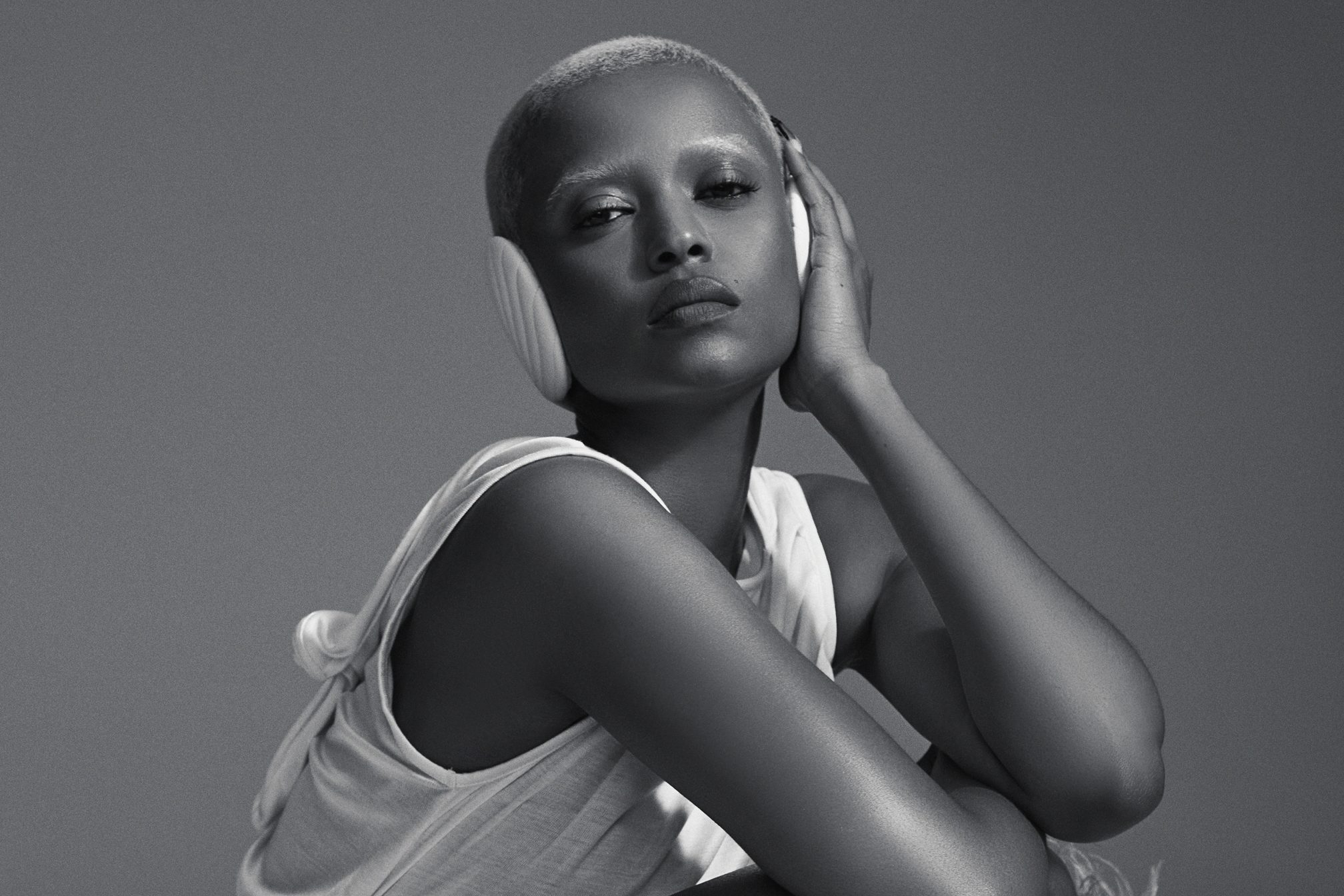 Features
Features
"Unmistakably Black": Kelela is a liaison between the worlds within dance music
On ‘Raven’, Kelela celebrates Black and queer contributions to dance music through a seamlessly flowing album. She speaks to Moya Lothian-McLean about her ‘hiatus’ and self-renewal, defying rigidity and why she's no longer interested in being a translator of sound
Kelela is on the precipice. Maybe. “I just confirmed Fallon on Friday,” the 39-year-old tells me, within the first minute of our computers connecting. Her long-awaited second album, ‘Raven’, drops the same day, six years after Kelela’s last full LP (an extensive remixed reimagining of her debut studio album, ‘Take Me Apart’) was released to the world. The Tonight Show booking – America’s longest running late-night institution, hosted by comedian Jimmy Fallon – could be a portent of a mainstream finally primed enough by the chart dominance of ‘oontz oontz’ music to pay attention to Kelela’s pioneering catalogue. Or, it could be a damp squib. The genre-busting singer is prepared for any eventuality. Kelela’s been here before.
“There is a feeling [it] could go there,” the singer and producer says, pausing to relight the joint that’s resting between elegant, long fingers. Wrapped in a fur-trimmed brown bomber jacket, a blonde Ganymede wig serving as a hat atop her shaved head, she’s perched on the windowsill of an East London hotel, exhaling into cold city air like a teenager. “A lot of people at once are going to see you perform this song, your album comes out the same day, and a video,” she says. “I’ve never done that. I’ve never gotten to this part of this feeling.”
But Kelela adds, there have been other feelings previously, that did not come to fruition. Instead, she has tried to find acceptance in her cultural position as “your fave’s fave – someone who’s on the moodboard but might not actually be in the thing”. Equating ‘success’ with a mainstream embrace offers too little control. “I don’t like the idea of trying to bank on that in order to feel fulfilled,” she states, raising bleached eyebrows. “With the work I do, I’m already experiencing so much fulfilment and beauty. It’s more about being able to build institutions and expand in ways that will allow me to have more power and space.”
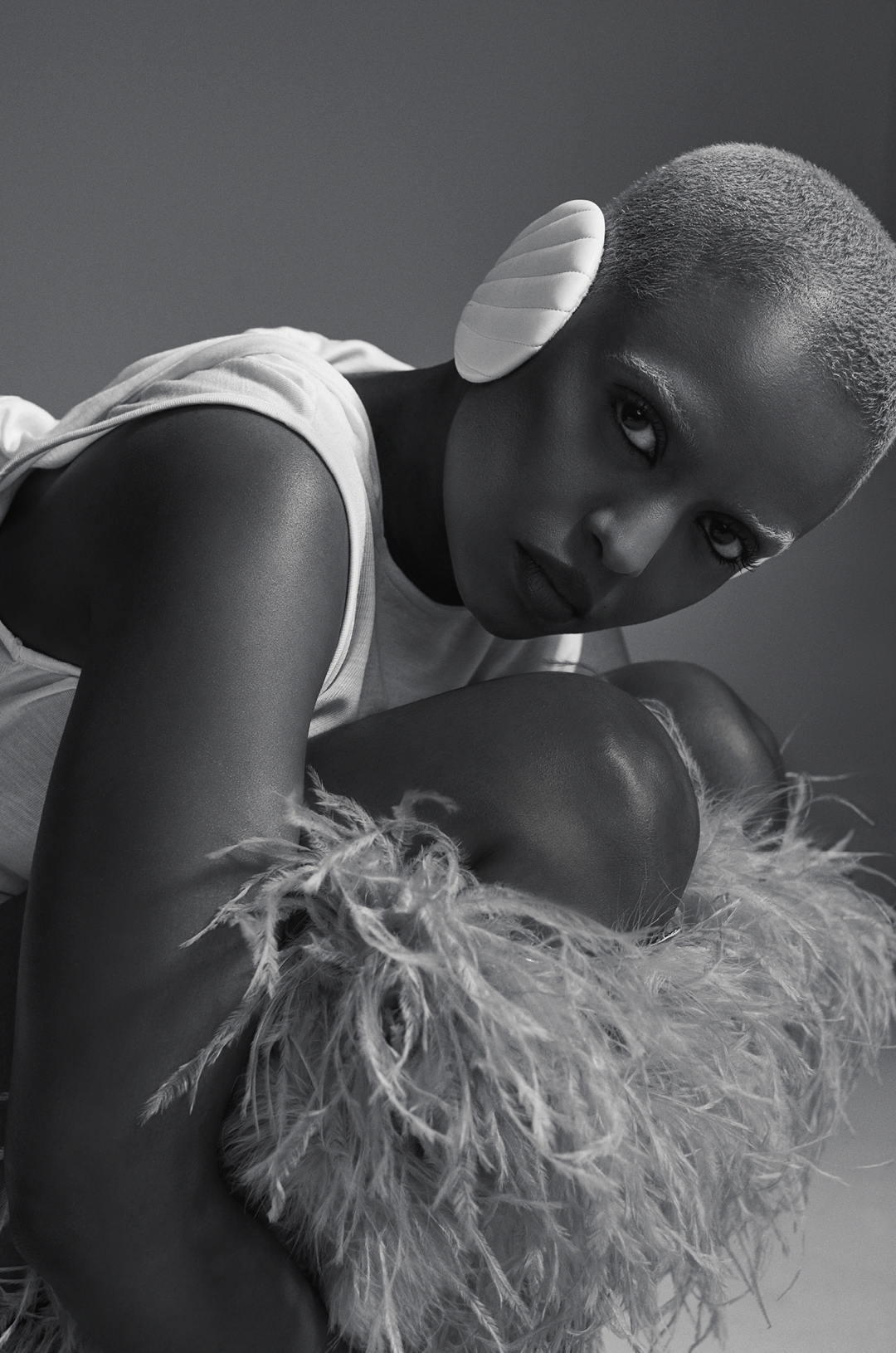
Kelela and I have met before. It was the summer of 2016, three years after Kelela Mizanekristos chopped off her second name and officially entered public consciousness with a mixtape so fully formed and boundary pushing it still shapes the conversation today, 10 years on. I had never heard anything like ‘Cut 4 Me’. Neither had the industry; they had no idea how to pigeonhole what Kelela did. She floated R&B melodies in a crystal clear soprano across “negative-space arrangements”, made for the club by buzzy underground producers from record labels Night Slugs and Fade to Mind. Critical acclaim and cult status followed.
Kelela’s streak continued with 2015’s brooding ‘Hallucinogen’ EP, featuring contributors like Venezuelan producer Arca and her close friend Asma ‘Asmara’ Maroof, one half of DJ duo Nguzunguzu. Like Kelela, Maroof – who served as co-executive producer on ‘Raven’ – hails from the suburbs of Maryland. She’s one of a coterie of musicians of colour Kelela has publicly and deliberately associated with, including the likes of Solange Knowles. What binds them is a refusal to submit to the straitjacket of racialised expectation in their music or public presentation. As a result they’ve garnered a passionate fandom, particularly in spaces where identities are marginalised and fluid. The music coming out of this cohort is scant on borders or binaries; it’s genre-fluid and asserts the right to exist in places where there’s been a concerted effort to push people like them out of – like dance music.
Read this next: How the Dance Music Industry failed Black Artists
It was within this context I nervously approached Kelela as a fan (something I prided myself on never doing), after a Moses Sumney gig in North London that she and Solange – the most well known at the time – attended. I only had eyes for Kelela though, telling her something overwrought, like her music was the “soundtrack to my soul”. She was generous and warm, hugging me and laughing her thanks. I held the memory close.
I do not relay this anecdote to the Kelela of today peering out of my screen, cupping her hands as she reignites her joint. But when speaks about her love for the “community” she’s built, and how her Fallon appearance has cut short her plans for a mini ‘Raven’ listening tour (proposed locales: London, Paris, Berlin, LA, New York, where sweaty boltholes inspired the record’s 15 tracks), it seems appropriate to let her know I haven’t come to this chat at a remove. Kelela thanks me for my support; I sense a slight relaxation as she realises she doesn't have to re-explain her entire journey and ethos, that we can speak on a level of sorts, that she is not required to – as she puts it later – translate, breaking with a mantle she’s worn for a decade.

Since her debut, Kelela has referred to herself as a“bridge”. The motif was born from her adolescence in Gaithersburg, Maryland, the child of two Ethiopian parents who pitched up in the US as part of a 1970s college scholarship programme. The pair met via a radical student movement and maintained those values, never marrying and co-parenting their daughterfrom two different apartments in the same building. As a result, the young Kelela’s formative years were built on a rich and varied cultural foundation, ranging from Tracy Chapman records to the music of South African musician and civil rights activist, Miriam ‘Mama Africa’ Makeba. From a young age she sang and played violin; in the eighth grade there was an opportunity to study Washington D.C’s Duke Ellington School of the Arts. But tuition was too much to realise the dream. Even now, a note of sadness colours Kelela’s voice as she says: “I didn’t go; I tried out”.
Instead Kelela leaned into the liminal, refusing to be categorised, while further feeling her way around the edges of the music industry she knew she one day wanted to be part of. The rise of pirating software like Napster kickstarted her love affair with electronic music; she shelved a degree in sociology and instead flitted between scenes like jazz, indie and punk, honing her voice to exacting standards while broadening her horizons ever further.
Read this next: Kelela: "The 'making something out of thin air' feeling is so delicious"
At age 27, Kelela wrote her first song, moving to LA to pursue music full-throatedly. There, she made a string of connections that eventually brought her to the door of multidisciplinary artist Total Freedom (given name, Ashland Mines). He linked her in with the Night Slugs crew and finally, alchemy bore an elixir. The tracks that made up ‘Cut 4 Me’, released when she was 30, were among the first 20 she’d ever written. It was not an easy process. “It was very challenging to figure out how to move from being a music head who sings a little bit into somebody who's like…” she says, trailing off. “It's the mystery of how to even write a song. It's just like, ‘what? How do you do that?’” Kelela’s method is instrumental first, picking up beats and perfecting them before coming back, sometimes months later, to marry them to lyrics.
It endures today; 13 out of 15 songs on ‘Raven’ were produced in under two weeks, a layered process that took place mostly in Berlin, with collaborators like German duo OCA, Maroof, LSDXOXO and Bambii, who also features in the video for the album’s most instant earworm, ‘On the Run’. The last song to be added was ‘Fooley’, produced by Khalí (Carela), who met Kelela at a party and expressed a desire to work with her. Looking at Carela’s Instagram after the encounter, Kelela came across a video of the producer partying in her studio and snapped to attention. “I’ve never done this in my life,” she grins. “But I was like ‘I need to write on THAT’. I told her to take it off Instagram.”
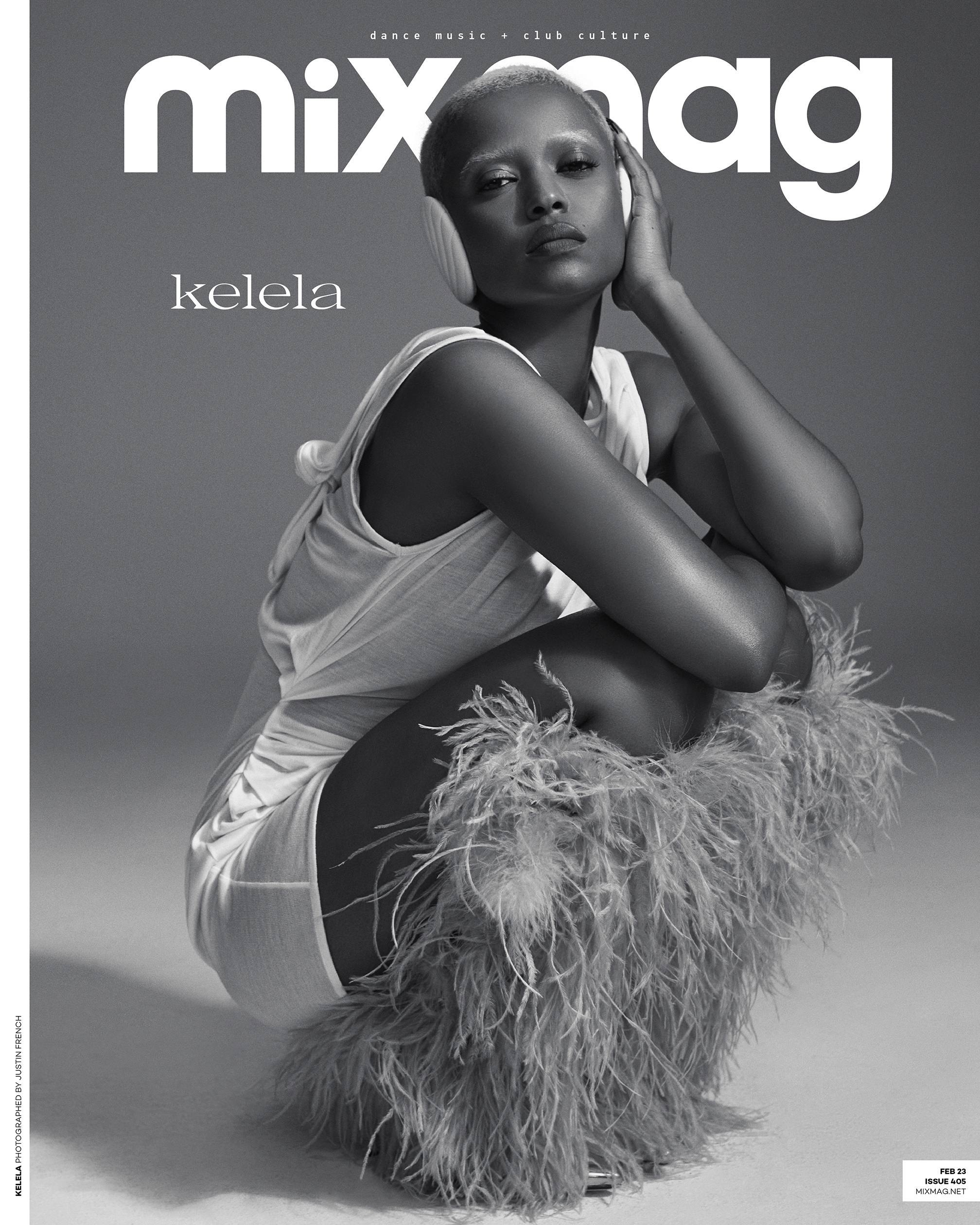
Carela’s production is now the backdrop of the moody and foreboding track eight of ‘Raven’, a record that tells the story of Black contributions to dance music, via a non-stop pseudo-DJ set – all the songs are mixed together, transitioning seamlessly. If that sounds like the elevator pitch for another dance album dropped in the last 12 months by a Black woman, you’d be right. Kelela is well aware of the parallels with Beyoncé’s ‘Renaissance’ (‘Raven’ was finished before news of that project leaked, for the record) and welcomes it. She doesn’t say it but the timing seems a relief; Beyoncé is taking on a bridging role between Black electronic music and white audiences that Kelela saw as her responsibility. With ‘Raven’ she’s finally left that in the dust.
“That wanting to make it so all these people come together because they’re interested in different parts of what I do, like white people here, Black people here, queer people here,” she says, gesturing, “is something I’ve let go of completely now. I’m not interested in being a translator of sound so different people can be put on to each other.”
‘Raven’ is Black and queer and steeped in the club spaces created by such people. It is written with that audience as the primary beneficiaries.
“There is no range of sounds I could write or offer that group of people, for the most part, that would not be received and understood,” Kelela says. There is a new mission though – beyond its celebration of queer club culture – running through ‘Raven’: to document the dialogue and relationship between Black-influenced electronic sub-genres, via the uninterrupted flow of the album.
Read this next: Honey Dijon: "Dance music has been colonised"
“You might press play on track four because you fuck with that track,” Kelela grins. “But it’s going seamlessly into track five and over time you start liking drum ‘n’ bass. This is a gateway for getting into new shit. Or something you didn’t see the relationship [between] before.”
“‘Closure’ starts off in a familiar R&B pocket,” she says, citing track six on the album, using the hand that isn’t outside the window to excitedly outline the song’s progression. “That is followed by a very beautiful New York verse by [rapper] RahRah Gabor. And that’s followed by a jungle-y breakdown that spits you out into [next track] ‘Contact’.”
“That,” she adds, empathetically, “is my perspective. Dancehall has everything to do with this thing over here, seamlessly goes into this thing over here, and this thing and this thing, as well.
“And the other underlying point of that,” she finishes, “is: ‘this is Black, that's Black, this is also Black. That was niggas too, this is Black people’. That is the point of me sort of mixing it all together, and also not being bound by any particular sound or subgenre.”
Rigidity in dance music is very patriarchal – and white, Kelela believes. You’re supposed to stick to one genre, like techno, with an extra emphasis put on abrasive sounds. “Which I love,” she’s quick to clarify. But “unmistakably Black” sounds have to be approved by the “white gaze” first before they’re let into the canon. “Jersey [club] just got back in,” she says, pointing to the explosive popularity of the high-energy club music. Jersey club originated in the clubs of Newark nearly 20 years ago, yet is being framed as the “sound of 2023” thanks to the new adherents it’s gained via TikTok. “It’s been doing the same drums for so long but suddenly it’s approved.”
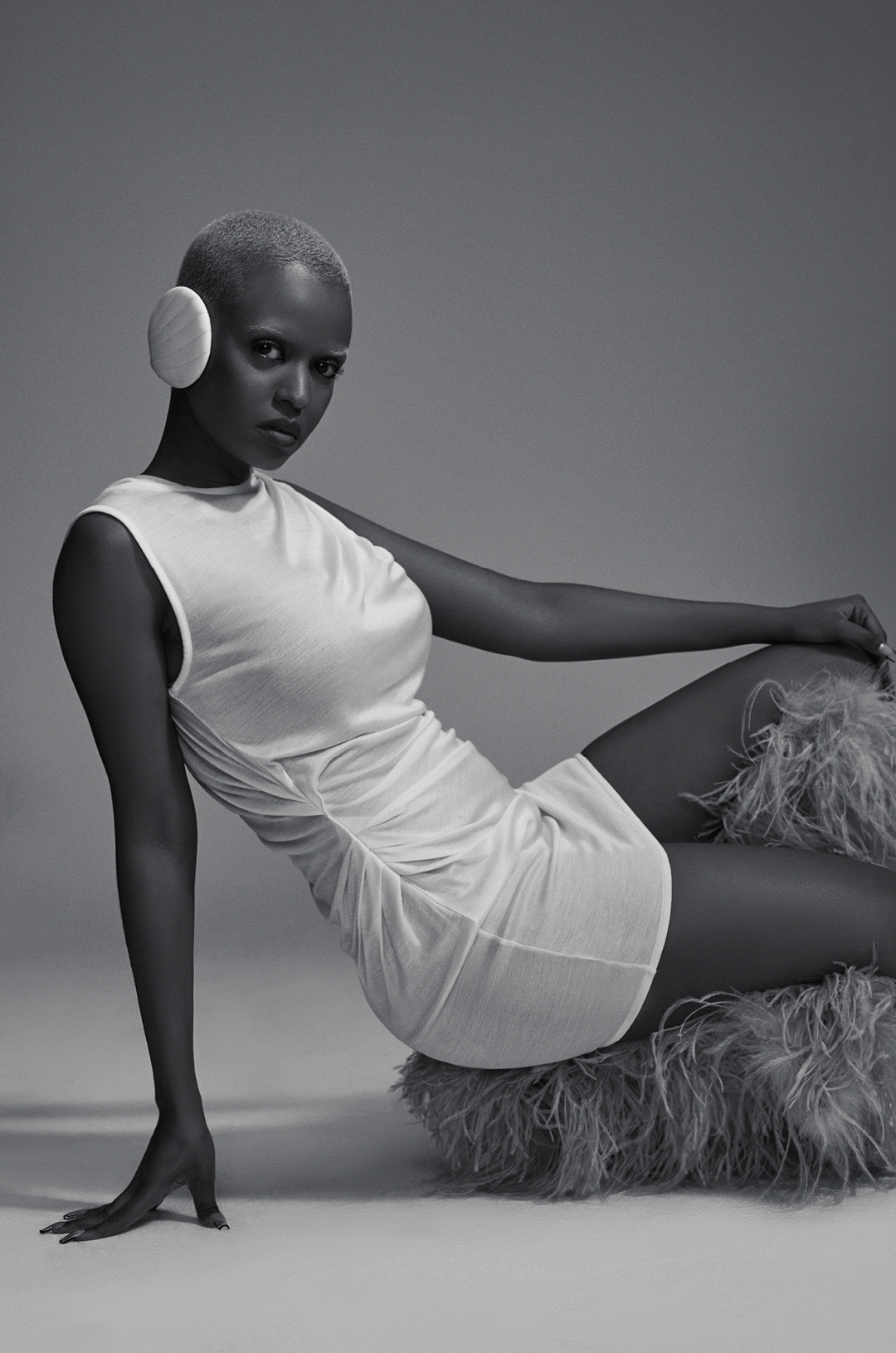
She is left cold by current efforts – or lack thereof (“Where is the organising? Where is it?”) – to make dance’s sector of the music industry more inclusive, which Kelela says, begins and ends with the representation of Black men as the sole metric of progress. “They are the weakest link,” she sighs.. “They’re going to get in first but also going to be like ‘Oops sorry guys’.” Colourism is also rampant.
“Someone who is not light-skinned in this space, there is so much you have to do to be received with the level of sophistication and craftiness that light-skinned women [are allowed]. The space is dominated by Black men and light-skinned women,” Kelela says wearily. Now, she’s convinced only dollars can counteract colourism and misogynoir. “You can be on a major label and be dark-skin and see a trajectory forged for yourself, but you can’t be Brown or dark-skin on an indie label”.
As a result, Kelela’s main focus is pulling up talent in the dance world who are more marginalised than her. A “Black femme”, she’s not exactly had an easy ride herself. Yes, says Kelela, but she’s also here - and that says something.
“There’s so many privileges I could point to,” she tells me, matter-of-factly. “I’m thin. Being of Ethiopian descent, classic beauty, which is proximate to white features. There’s so many isms, so many stratifications that I have a privilege in, despite the things that put me at a disadvantage. There’s a reason why we’re even having this fucking conversation. I always like to centre that”. I agree, I say. There’s a reason I - a light-skinned, mixed-race woman – am the one sitting here, posing her questions.
She nods. “It’s very important for all of us who are in to be saying that. Because if we don’t, it really looks like we’re the best. I think I’m very good, we can take pride in our work. But in no way shape or form, the people that you see are just the best people like that. That doesn’t take away from me. I don’t feel less excellent. I’m just saying there are hella niggas being so amazing, who plant a seed and then all the light-skinned, thin people pick it up.”
Dance music needs an NAACP, she thinks. What would that look like, I ask?
Kelela reels off ideas: legal help, mentorship, navigating management and how to tour. Basically: “How does this shit work? There are so many components that are coded,” she says. “I’m thinking about people who are able to wedge themselves in but can’t go further because of the oppressive systems that dictate how we’re moving through.”

Her six year gap between ‘Take Me a_Part, the Remixes’ and ‘Raven’ was spent, in part, ingesting knowledge to help her make sense of her experiences as a Black femme, both in music and the wider world. She parted ways with her business manager and – amicably – her publisher. She pulled together a resource featuring books ranging from Algorithms of Oppression by Safiya Umoja Noble, to podcasts like Seeing White, that is now sent out to every would-be Kelela collaborator; the New York Times refers to it as the “syllabus for the university of her mind”. The Will to Change, an examination of masculinity by radical Black feminist bell hooks, was a significant influence on ‘Raven’’s lyrical content; Kelela listened to the audiobook while writing in her signature style, which prizes emotive specificity (“One of the reasons I love Joni Mitchell - she’s so good at writing out a nuanced thing we all saw but no one ever pointed to'”) over broad brush strokes.
Love, sex and relationships are central to Kelela’s music. When she picked up The Will To Change, she was exhausted by her intrigues with men, pointing to the backstory grounding ‘On The Run’ as a pertinent example. “That’s about a particular nigga where there’s a really strong connection but they don’t have the courage to be with someone like me,” she says, wryly. “That’s a real fucking feeling.” When it came to men she was “over it,” comparing disappointing romantic relationships with the level of “rigour and care ... the culture of responsibility” she shares with her friends.
Via the The Will to Change came the promise of “renewal and compassion” – not a reprieve from accountability for her male partners but breathing space for her and the ability to dive in afresh. It would prove the theme that defined ‘Raven’; the record in its entirety is one of self-renewal. The name made itself known to Kelela as she worked with New York producer AceMo on what would become the title-track.
“He played that synth and as soon as that started I was like, ‘this is giving title-track and I'm going to talk my shit’. Town crier vibes,” she recounts. One of Kelela’s improvised lyrics was “a phoenix is reborn” because “that's what this feels like. It feels like I'm rising above the ashes. Thought a bitch was down, she's back. Period. They did not take me out.”
Read this next: The Cover Mix: Best of Kelela
However, the phoenix reference itself had to go because phoenixes are “played the fuck out”. A search for other birds, with the one caveat that they couldn’t be white, turned up the raven. Immediately it struck a chord. Further reading had the signs stacking up: the stigma attached to black birds, the raven’s role as a liaison between worlds... And so ‘Raven’ was born and Kelela renewed. Another remix album is set to follow; she’s sending out the stems the moment ‘Raven’ drops. For Kelela, the remixing is no afterthought but a full undertaking, equal in scope to the project being reworked. She’s excited; finally, she has the pull to tinker with songs as she sees fit.
“The first [remix project, 2015’s deluxe release of ‘Cut 4 Me’], I didn’t have the agency to do what I wanted on that one,” she says. It wasn’t until ‘TMA’ that Kelela had the sway to issue an edit: “Nothing is going to be on this project unless you’re willing to send stems and allow me to do the final arrangement.” Still, she lacked the resources to do a total rewrite so settled for a hybrid; contributors sent all the stems to Kelela and Maroof who rearranged them.
She has a special ear for rearranging instrumentals, Kelela tells me, her sentences no longer tangling with one another and heading off on tangents, but going from A to B, ordered and precise as she outlines the methodology behind her magic. “My producer friends send me shit and I can be like ‘This is what you should do for it to be really listenable ... You need a B section. You can’t just have this loop’.” Remixes live in two categories, she instructs: an instrumental with sampled vocals layered on top and the other category, which Kelela’s “number one remix of all time”, Timbaland and Static’s 1999 reimagining of ‘Say My Name’, belongs to — a total rewrite.
She’s pleased the rewrite seems to finally be back in vogue (“The digital age made it so record companies are not spending hella money on the remix. Back in the day, there [were] zillions of dollars available for this other thing. That was default, built into record deals!”) – and aware of her own influence over the form. “Before [‘Take Me a_Part, the Remixes’], I remember trying to explain what I'm trying to do. People were like: ‘really?’. Now it feels like a standard,” she notes. “Lady Gaga is doing a remix project! All the girls are doing a remix project. I’m so happy. Because that was the fucking point. So people could be like ‘I want one that sounds like that‘.”
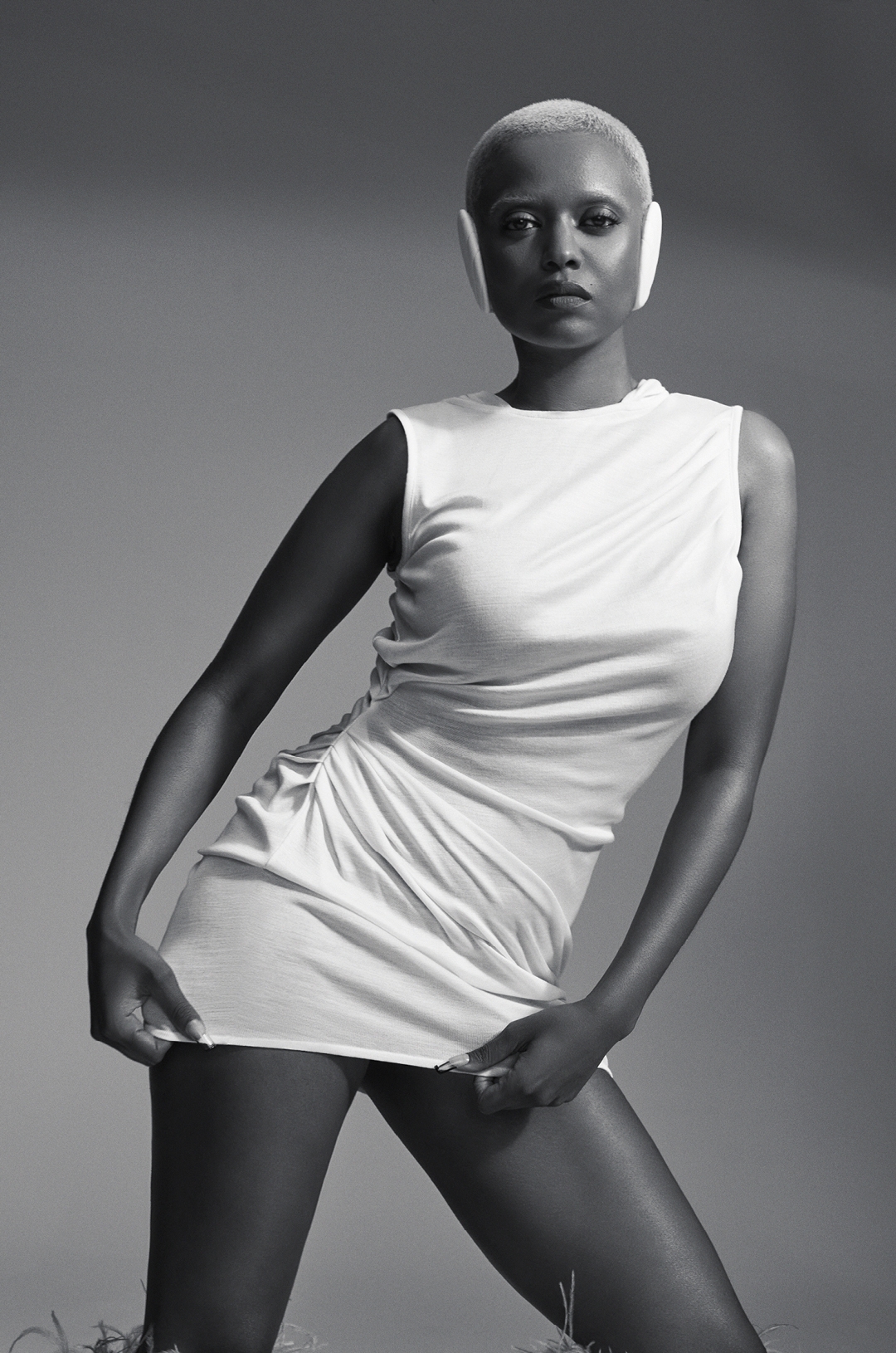
‘Raven’ is a blossoming of seeds she sowed in ‘TMA’’s remixed iteration. “The [‘Take Me Apart’] remix project was meant to get Black people into their own selves, into their own music,” Kelela explains. “This ‘Raven’ album is an extension of that practice. Remixing and rearranging is so Black. It’s a very important part of the contribution that Black people have made”. Like ‘TMA’, the remixed version of ‘Raven’ will highlight the work of people who are typically not celebrated until they’re gone.
“We can’t have the culture of dance music where we’re only respecting Black people doing amazing work when they’ve passed or are in old age,” she says. “That’s a big part of my legacy or what I want to be my legacy: to highlight the work of people who are making sick shit right now, and are marginalised.”
Simultaneously, Kelela’s preparing to head out on the road on her first international tour since 2018, an undertaking she is “so ready and excited for”. The opportunity also allows her to further indulge in the culture of remixing.
“The beauty of the Kelela set for me is just that I don't ever have to do the same fucking version,” she says. “I’ll never have to do the same version twice if I don't want to; the culture of DJing is a big part of how I construct my set. I'm basically making a mix”.
She loves her fans and is clearly proud of the respect that characterises their relationship to both her, and each other. A meme asking “Where is Kelela?” that emerged during what her friend dubbed her ‘sabbatical’, was reappropriated into promo during the first months ‘Raven’ was teased. Kelela notes that yes, our particular capitalist timeline demands constant productivity and creation. But the way her fanbase navigated her break, really drove home “what it means to be a Kelela fan”.
“I feel very light about that. I'm not like ‘‘why does everybody keep saying I’m on hiatus?’,” she says, pitching her voice down into a comedy grumble. “I’m not feeling that way at all ... What I do love about my fans, and what I will say is [requests for new music] feel very different. I wanted to highlight that as I was reappearing on the internet”.

There was “so much respect” in how fans called out for Kelela, she observes. “They'd be like: ‘whatever she's doing right now, I know it's what she's supposed to be doing. So that she can deliver the thing that we're supposed to get whenever it is’. There is just so much care. And it’s a very radical sort of way to express enthusiasm in this moment.”
It was a relief. “I have my intentions to have a certain type of effect,” she says, of her fanbase. “A lot of my peers do [too]. Sometimes it doesn't match up all the way with what you are intending, you know, and I've seen so many people feel like [the music] doesn't attract who you wish you were attracting.” Translation: we don’t want our fans to be dicks.
“I’ve had doubts,” she admits. But her sabbatical blew those away. “There was a subtext I kept seeing pop up: that being a Kelela fan is somebody who wears their heart on their sleeve, even in the face of foul behaviour. And the [impact] I’ve wanted to have felt matched in how that was landing.
Yes, I tell her, this tracks: when I was at university, I used to sing Kelela (badly - I don’t share her gift for transcendently clear whistle tones). One day I spotted a comment on the Facebook page for our housing block. “To whoever sings Kelela every day: I love you,” it read. The story sends her into full bloom. “That is,” she says, forcefully, “so cool. Those are real reviews. What are you doing? What are you fostering? What kind of culture amongst people is it producing? All those things are huge. They're bulwarks in what I am trying to do out here.
“When I get that type of feedback, it makes me be like, ‘Oh, my God, the fact I'm not literally in contact with anyone in that [exchange]. But it’s happening between people’. It’s really powerful. That's a dream come true.”
'Raven' by Kelela is out now via Warp, check it here
Moya Lothian-McLean is Contributing Editor at Novara Media and a freelance writer, follow her on Twitter


